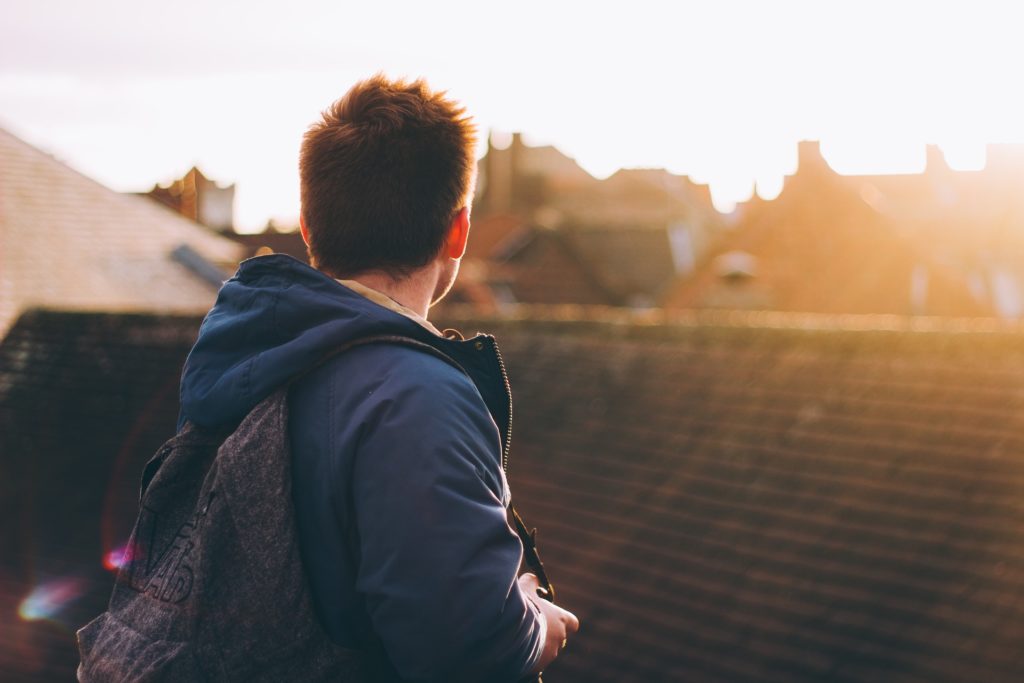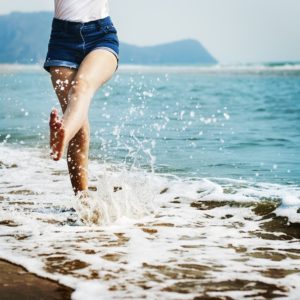
Traveling can be challenging for the recovering addict. Going on vacation or most any trip can add to the feeling of stress when away from your recovery support team. Knowing how to find a support group when traveling can help you plan for triggers.
Planning for Triggers
Planning is key to travel. Working with your therapist prior to taking a trip and addressing any anticipated triggers or situations can help you maintain your recovery plan. It can help to have safeguards in place prior to the vacation.
Assessing where substances may be can also be helpful and knowing how to avoid them if possible is important.
Working out triggers with family members, friends, or areas where alcohol and drugs may be can help you prepare for how to handle or avoid them. Planning for safe self-care is also essential [1].
Take along some of your favorite reads, or find a new book to read while traveling. Make sure you have some of your favorite movies, games, or other items as well. This will help keep you distracted from your triggers.
Support
Reaching out to support groups while traveling is extremely helpful for check-in’s and continued support. Looking online to see what groups will be in your area is significant. Note the days and times the group meets as well as any special scheduling time.
Plan to reach out to your treatment team, support group, and sponsor while you are away. Being able to access your usual support system at least once during the trip while away can help you keep perspective during stressful times.
Prior to traveling, it can be beneficial to tell your support group and treatment team about your plans. It can help to stay in touch with them, so make sure you have their cell phone numbers and/or email for continued support.
 Plan what and who your support system will be prior to your trip. You want to be able to protect your sobriety ahead of traveling events [2].
Plan what and who your support system will be prior to your trip. You want to be able to protect your sobriety ahead of traveling events [2].
Attending a Twelve Step meeting such as Alcoholics Anonymous, Narcotics Anonymous, or another program can help. It would be prudent to know how you will get to and from a meeting if you need to attend one.
It would also be helpful to take part in self-care activities or make check-in phone calls to a support person.
It can also be useful for you to work out a plan of action if you are unable to break free for a 12 Step meeting. Know what coping skills will be best to use in stressful situations.
Research has shown that stress can dredge up behaviors that were thought to be resolved to the surface and create stressful and triggering situations. Often it can be over money, family expectations, and responsibilities during a trip [3].
Finding a Group
Finding a group can be fairly easy when traveling. As stated prior, it is about planning ahead before your trip. Preparing and knowing what groups are available can be helpful to manage a stressful situation rather than trying to figure it out at the moment.
SAMHSA (Substance Abuse and Mental Health Services Administration) lists groups of various addictions and the cities where they are located on their website [4].
You can visit the website to visit an organization’s webpage such as Alcoholics Anonymous, Cocaine Anonymous, Dual Recovery Anonymous, and more. From there, you can search for local groups in your area or even web-based support groups.
Another option is looking for online support while traveling. There are online forums where individuals can post comments and find support for those struggling.

A person can also go to local support groups and meet others focused on a sober life. You may be able to learn new skills to manage cravings or triggers [5].
Support groups can help keep you remain accountable to your sobriety and also remind you that you are not alone in this process.
Remembering that traveling and keeping your sobriety involves the 3 P’s
Plan ahead. Talk with your loved ones, treatment team, and support system to realistically set your expectations for the vacation. Visualize what a successful trip would look like.
Try to come up with a list of triggers and stressful situations that could hinder your recovery. Determine what coping skills you will utilize. Work ahead to locate support groups within the area, or get connected online prior to your travel.
Prepare for triggers. Work on coping strategies, distraction tools, and self-care possibilities. Look into any classes in the area for yoga, mindfulness, or something that can take the focus off the temptation to use drugs.
Practice coping skills and reach out when needed. Practice your coping skills prior to the trip. While traveling, keep stress to a minimum. Reach out to support individuals and support groups to help during the vacation.
Trips and vacations are an excellent time for many, and knowing that you are not alone can help you stay true to your recovery plan.
 About the Author: Libby Lyons is a Licensed Clinical Social Worker and Certified Eating Disorder Specialist (CEDS). Libby has been practicing in the field of eating disorders, addictions, depression, anxiety and other comorbid issues in various agencies. Libby has previously worked as a contractor for the United States Air Force Domestic Violence Program, Saint Louis University Student Health and Counseling, Saint Louis Behavioral Medicine Institute Eating Disorders Program, and has been in Private Practice.
About the Author: Libby Lyons is a Licensed Clinical Social Worker and Certified Eating Disorder Specialist (CEDS). Libby has been practicing in the field of eating disorders, addictions, depression, anxiety and other comorbid issues in various agencies. Libby has previously worked as a contractor for the United States Air Force Domestic Violence Program, Saint Louis University Student Health and Counseling, Saint Louis Behavioral Medicine Institute Eating Disorders Program, and has been in Private Practice.
Libby currently works as a counselor at Fontbonne University and is a Adjunct Professor at Saint Louis University, and is a contributing author for Addiction Hope and Eating Disorder Hope. Libby lives in the St. Louis area with her husband and two daughters. She enjoys spending time with her family, running, and watching movies.
References:
[1] Ways to Avoid Relapse on Holiday. (n.d.). Retrieved November 02, 2017, from https://www.rehab4addiction.co.uk/article/7/ways-to-avoid-relapse-on-holiday
[2] Enjoying a Happy and Sober Holiday Season. (n.d.). Retrieved November 02, 2017, from http://www.hazeldenbettyford.org/recovery/tips-for-sober-holidays
[3] Jaffe, A. (2010, December 23). Addiction during the holidays: Recovered or not, it’s important to be prepared. Retrieved November 02, 2017, from https://www.psychologytoday.com/blog/all-about-addiction/201012/addiction-during-the-holidays-recovered-or-not-its-important-be
[4] Behavioral Health Treatment Services Locator. (n.d.). Retrieved November 06, 2017, from https://findtreatment.samhsa.gov/locator/link-focSelfGP
[5] Addiction Support Groups. (n.d.). Retrieved November 06, 2017, from https://www.addictioncenter.com/treatment/support-groups/
The opinions and views of our guest contributors are shared to provide a broad perspective of addictions. These are not necessarily the views of Addiction Hope, but an effort to offer discussion of various issues by different concerned individuals.
We at Addiction Hope understand that addictions result from a combination of environmental and genetic factors. If you or a loved one are suffering from an addiction, please know that there is hope for you, and seek immediate professional help.
Published on February 2, 2018
Published on AddictionHope.com
